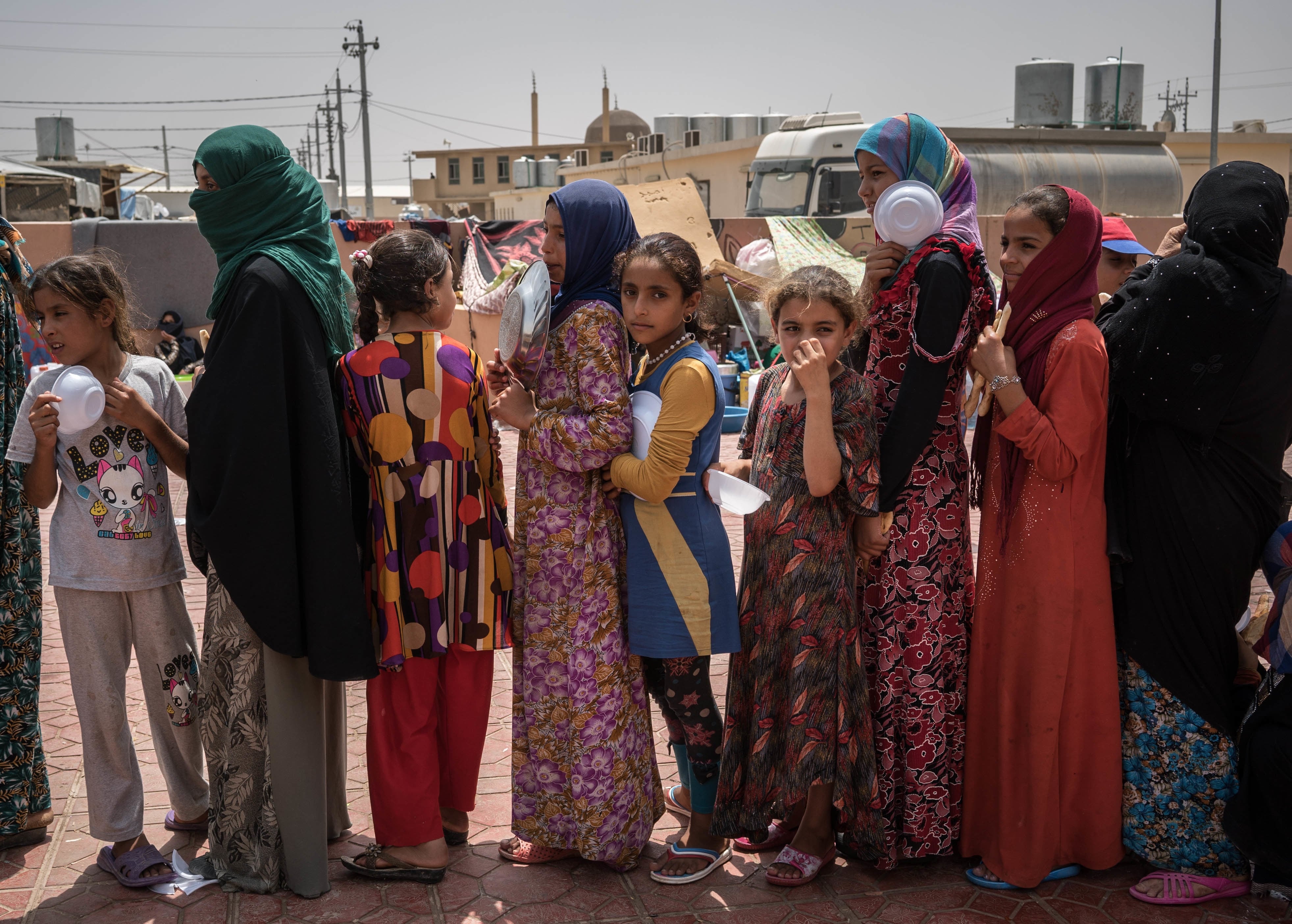GENEVA — A looming Iraqi military operation against the Islamic State group in Mosul could spark "one of the largest man-made disasters" in years, the U.N. refugee agency's top official in Iraq warned Thursday, urging the international community to keep up support for displaced Iraqis before a battle that could mark a turning point for the war-ravaged country.
Bruno Geddo of UNHCR says more than 1 million people could be displaced by the campaign to retake the largest IS-held city, which has an estimated population of 1.2 to 1.5 million. The Iraqi government has pledged to retake Mosul this year, but has not announced a date for the operation — and has been gearing up with support from the United States and other allies.
Speaking Thursday to reporters after meetings with donors in Geneva, Geddo said UNHCR is preparing as well, but faces constraints in obtaining land for camps, erecting them in time, and winning full funding for its plans. He said UNHCR and partners are planning to provide tents, water, medical support and other services to the estimated 700,000 people who might flee Mosul.
The military operation in the city "has the potential to be one of the largest man-made disasters for many, many years."
However, he said the agency is better prepared to act than before a similar government operation lasting 6-1/2 months to liberate Fallujah, west of Baghdad, in May and June, and noted lessons that UNCHR learned from that operation.
"The first lesson is: It is too late when you receive funding when the crisis hits the television screens, which has normally been the pattern in the past in dealing with humanitarian crises," Geddo said. "We need funding to prepare in advance of the emergency."
"This time, whereas Mosul may have dramatic — in the worst case apocalyptic — proportions, in a way we are in a better position because we know that it is coming," and funding was coming together in part, he said.
Plans are, for example, to pre-position tents closer to the theater of operations, in case people flee before camps are ready.
"In an ideal situation, we should be able to provide a roof on every family within 24 hours," he said. "It is going to be a huge challenge but we are planning to try our best to meet this."

In this Aug. 7, 2016 file photo, women and children stand in line to receive a portion of food at Dibaga camp for internally displaced civilians in Iraq. The U.N. refugee agency says that more than 100,000 people have been displaced as Iraqi forces clear territory ahead of the critical battle for the Islamic State-held city of Mosul.
Photo Credit: Alice Martins/AP
Geddo noted that the extremist IS group had deployed tactics like using civilians as human shields, and aired concerns about how Shiite militia groups allied with Iraqi troops had reportedly mistreated civilians fleeing Fallujah as suspected IS accomplices.
He said sustained international support was essential to help Iraq's government overcome IS and stabilize the country.
"The Iraqi people deeply are traumatized. This war now, 2016-2017, might with luck mark a turning point for the country," he said. "The international community should not succumb to fatigue, should stay the course, should continue to support Iraq as much as we can, so that Iraq can mark the turning point."
Associated Press writer Sinan Salaheddin in Baghdad contributed to this report.



